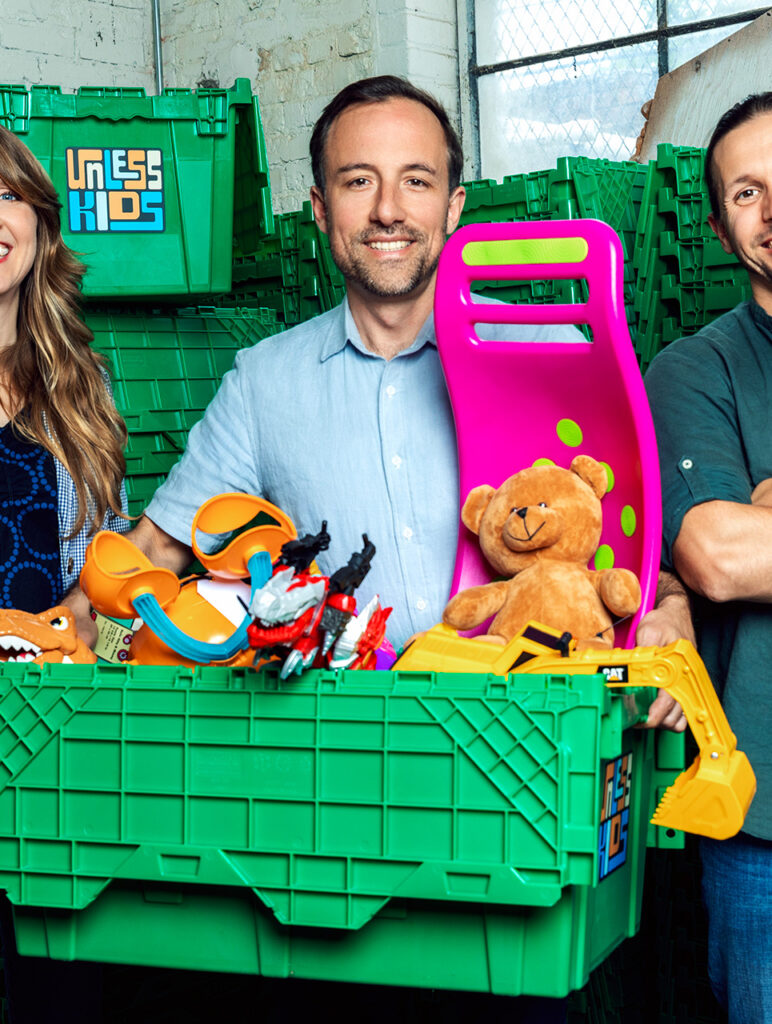Nic Esposito wants to reimagine the retail industry; he believes that people, profits and the planet would benefit from leaving business as usual behind. That’s where Circa Systems comes in. Esposito founded the Philadelphia-based company in 2023 to create a more sustainable, local retail model, allowing paying members to purchase and swap mostly used products
MoreUmbrellas—designed as a convenient solution to getting caught in the rain—can be surprisingly unwieldy. On a stormy day, Philly sidewalks are filled with all shapes, sizes and varieties. But, when the wind is strong, the flimsy shields often can’t withstand the pressure, acquiring that all-too-familiar inside-out look. At that point, the city becomes an umbrella
MoreMarvin Dixon takes lessons learned on a farm to the luxury hotel businessby Char Vandermeer
If the typical luxury hotel is a gaping hole of conspicuous consumption, then Philadelphia’s Four Seasons Hotel is anything but. With its hugely successful composting program, a commitment to reusing cooking oil, an aggressive commingled recycling program and a brand-new cogeneration
What to do with your trees, lights and wrapping paperWhen I was young, my family had a semi-official competition for the prize-winning bow each year at Christmas. The contenders would tirelessly toil away on their masterpieces, and the winner would be appropriately admired, photographed and stored away until the next year, when it would be
MoreWhen I was a kid, the holiday season was all about the gifts. I remember them well: baseball gloves, bikes, electronic games. As the publisher of Grid, I wish I could tell you that all of that stuff didn’t make me happy—but that would be a big fat lie. Each year, my favorite gift and
MoreInquiries into the Nature of Slow Moneyby Woody TaschChelsea Green Publishing; $21.95
Our world economy revolves around capitalism and is in a state of constant expansion. Having doubled two times since 1960, it is expected to quadruple again by the middle of this century. Many fear a collision between profit and growth and the welfare of
Two organizations ready to rid you of your Commodore 64by Samantha Wittchen
Let’s be honest. Did you purchase a Gateway 2000 back in 1991 because you simply couldn’t resist those Holstein cow spots on the packaging? And now where is it? If you’re like many Americans, it’s probably waiting for a better home in a corner
If you’ve never made a halloween costume before, don’t feel intimidated. This project can be as simple or as complex as you want it to be. Before beginning, you’ll need to gather supplies, but luckily, this costume can be made almost exclusively using household items.
MoreA maverick CEO makes the case for sustainabilityby Alex Mulcahy
In 1994, Ray Anderson, the CEO of an industrial carpet manufacturing company, faced a task he dreaded: delivering a speech to his workers about his company’s environmental policy. The problem was that his company, Interface Inc., didn’t have an environmental policy. They weren’t breaking any laws;
My dad made a robot costume for me when I was in first grade. I waited until the last minute to make my choice known, leaving him precious little time to convert found paper rolls, cardboard boxes and tinfoil into a robot. Despite my dad’s industriousness, the costume had some engineering flaws.
MoreConscious consumers are spending wisely, and don't compromise on qualityby Stephanie SingerThe quest began two months before my sister’s wedding. I wanted to buy her the perfect gift, but unfortunately I was in a personal recession, between jobs and with shrinking funds. I decided to try my luck finding something used. Every weekend I scavenged
More
